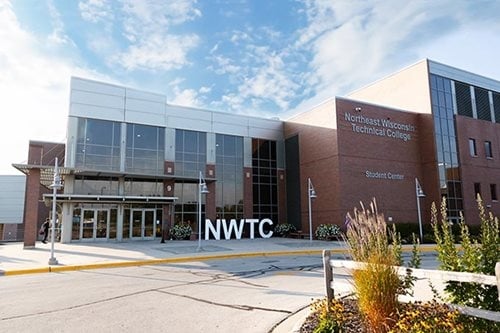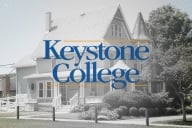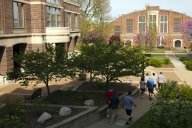You have /5 articles left.
Sign up for a free account or log in.

Lakeland University in Plymouth, Wisconsin is relocating its center in Green Bay to the main campus of Northeast Wisconsin Technical College, also in Green Bay.
Northeast Wisconsin Technical College
While falling enrollments have led numerous campuses within the Universities of Wisconsin system to close or move online over the past two years, a private college in the state is taking a proactive approach toward securing a strong transfer student pipeline.
Lakeland University, a small liberal arts institution in Plymouth that enrolls more working adults than traditional-age college students, announced Monday that it’s relocating its center in Green Bay to the main campus of Northeast Wisconsin Technical College (NWTC), a two-year institution (also in Green Bay) and will start offering courses there this summer.
Lakeland will offer more than a dozen bachelor’s degree programs as well as four master’s degree programs at the new center. Students who graduate from NWTC and transfer to Lakeland can enroll as juniors, according to a news release from the university. They’ll also receive a 20 percent tuition discount for undergraduate courses, get credit for some prior coursework and up to a full year of credits for work completed through Lakeland’s cooperative education program, which allows students to earn academic credit for professional work experience.
While the agreement between Lakeland and NWTC is new, it’s just the university’s latest move in an ongoing strategy to adapt to shifting student demographics and workforce demands. Lakeland has created five co-location partnerships in the state, including at Fox Valley Technical College and Waukesha County Technical College since 2018, when it launched its cooperative education program.
“We knew there would be fewer students to enroll. We wanted to figure out where we could be different and bold,” said Beth Borgen, president of Lakeland. “The focus on all of this was how to make a student-centric approach to higher education which is changing very quickly.”
Those anticipated demographic shifts were compounded by the pandemic, which injected more chaos into the national enrollment picture—especially at two-year and small liberal arts colleges—and by increased public skepticism about the value of college. Lakeland experienced that reality firsthand; its enrollment dropped 31.5 percent between 2019 and 2023. But university administrators are hopeful that providing opportunities for a seamless transfer will attract more students.
“While we didn’t predict COVID happening, our program has been a really interesting fit for students who don’t want to choose between work and college,” said Borgen, who noted that about 75 percent of the university’s adult learners transfer in from one of Wisconsin’s technical colleges. “We’ve positioned ourselves to not only bounce back from COVID but also [to] address the changing needs of our students.”
Part of addressing those changing needs, which increasingly involves preparing adult learners for in-demand careers, is “meeting students where they are,” she said.
Although the vast majority of community college students say they want to earn a bachelor’s degree, roughly one-third will transfer to a four-year institution and fewer than half of those students will earn a bachelor’s degree within six years of starting community college, according to data from the Community College Research Center, or CCRC. Higher education experts and researchers have repeatedly noted that those outcomes can improve if four-year colleges collaborate more fully with community colleges to support transfer students.
Lakeland establishing a presence at the technical colleges from which prospective students may transfer is one example of how to do that.
“Oftentimes, our faculty are also faculty of the technical college system,” Borgen said. “So for a student that has familiarity with faculty members, this extends it and creates a level of comfort.”
Kathryn Rogalski, vice president of learning at NWTC, said the college has already had success transferring its graduates into Lakeland’s bachelor’s programs, so the co-location partnership seemed like a natural fit.
“Just like community colleges, technical colleges are often serving students who need to stay regionally and can’t go away to a university,” she said. “We want to make sure those students have the most advantages when they come to us and when they transfer. The idea that students can stay local and complete a bachelor’s degree at a reduced tuition rate without having to take extra credit hours makes so much sense.”
Davis Jenkins, a senior research scholar at the CCRC, said Lakeland’s co-location model is a promising model for adapting to changing student demographics.
“They’re not just waiting for students to come to them. They’re building pathways into them,” he said. “This is precisely the kind of thing the University of Wisconsin system should be doing.”








